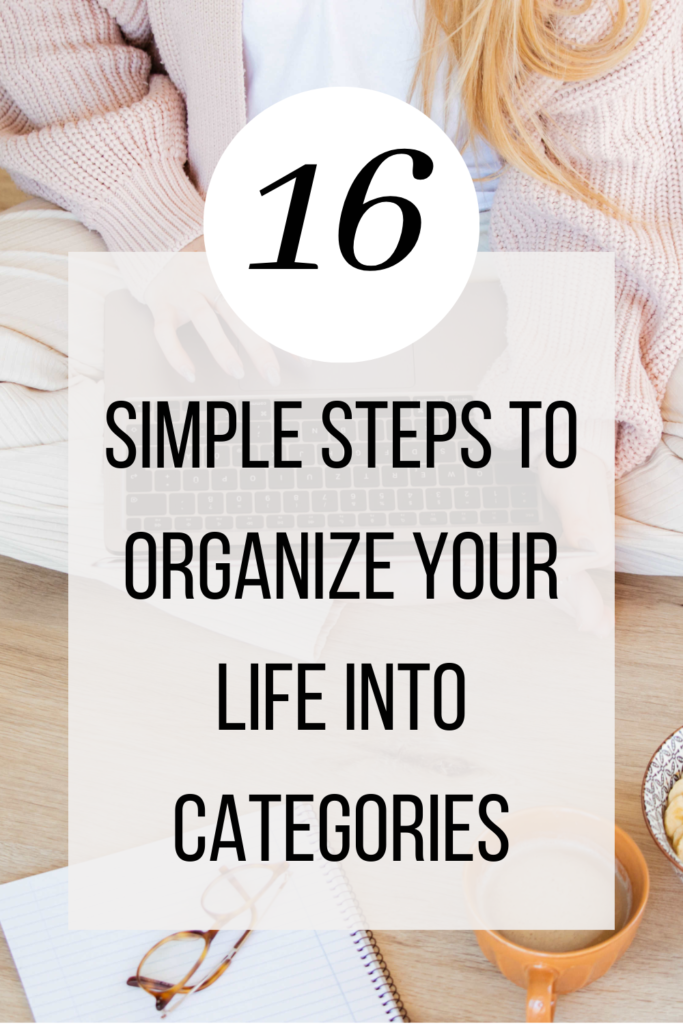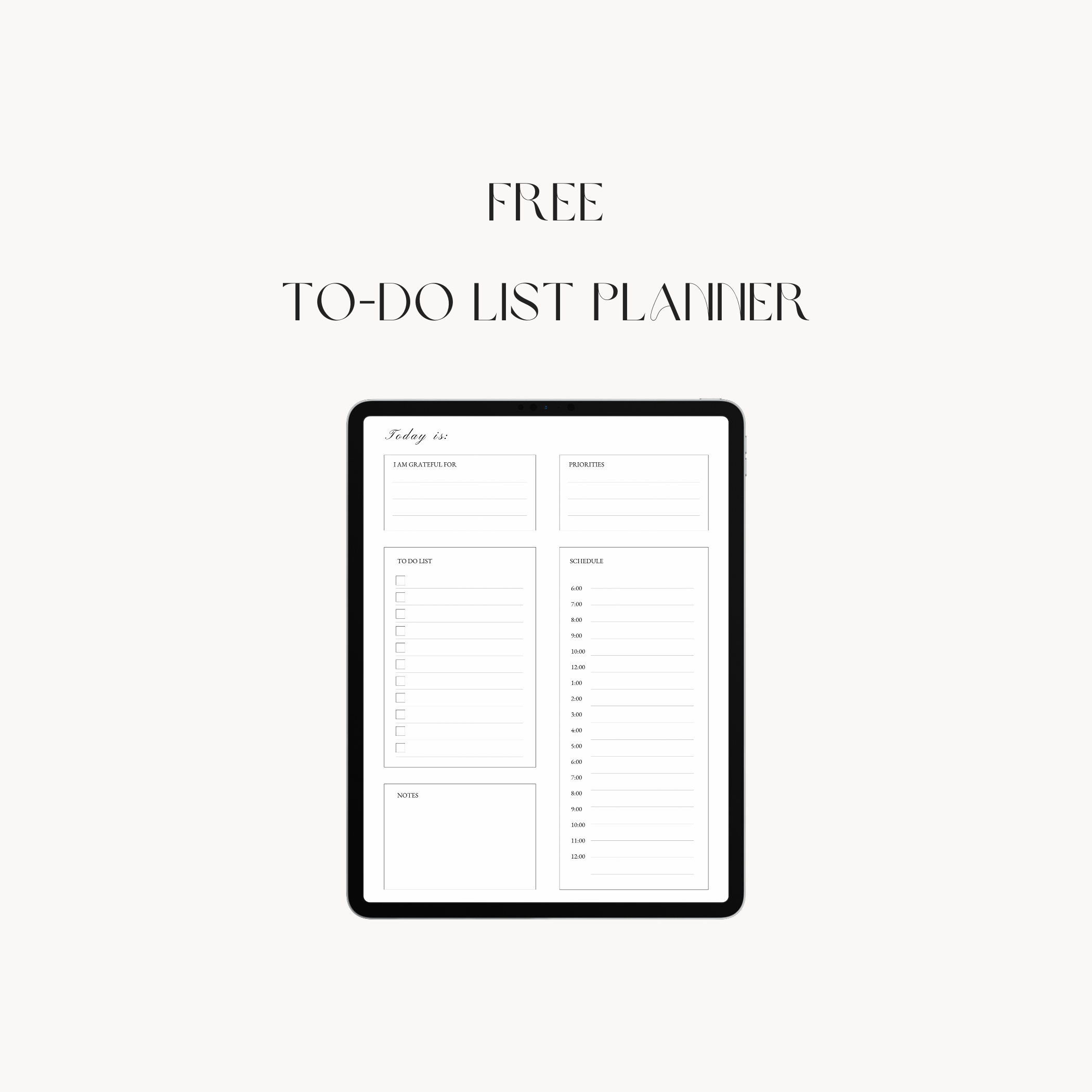Hey there! Some of the links on this blog are affiliate links. That means if you click on them and make a purchase, I might earn a tiny commission – but don't worry, it won't cost you an extra cent. It's like giving a high-five to support the content. Rest assured, I only recommend stuff I genuinely love and think you'll enjoy too!
Have you ever felt like you’re drowning in tasks, deadlines, and endless to-dos? Don’t worry – you’re not alone! But fear not, because today, we’re diving into the wonderful world of organization! Imagine a life where everything has its place, where you feel calm and in control, even when life gets crazy. That’s what we’re aiming for, an organized lifestyle – and trust me, it’s totally achievable! Whether you’re a busy student trying to juggle classes and a social life, a hardworking professional aiming for that work-life sweet spot, or just someone who wants to feel more on top of things, this journey is for you.

So, grab a cup of your favorite beverage, cozy up, and get ready to learn how to organize your life into categories like a pro. Let’s banish the chaos and bring on the calm, one step at a time! Ready to dive in? Let’s do this!
1. Start with the First Step:
Getting organized often begins with a moment where you realize things could be better. It’s like a light bulb moment in your brain, where you suddenly see a path to a less chaotic life. It’s okay if things feel overwhelming at first – just remember that every big journey starts with a single step. So, take a deep breath, embrace this moment of clarity, and know that change is possible if you’re willing to take that first step forward.
2. Prioritize Mental Health:
Your mental well-being is like the fuel that powers your organization engine. If you’re feeling stressed, anxious, or overwhelmed, it’s hard to stay on top of things. That’s why it’s super important to make time for activities that help you feel good. Maybe it’s going for a walk in nature, doing some deep breathing exercises, or spending time with family members and loved ones. Whatever it is, prioritize your mental health and make it a regular part of your routine. A clear mind is the essence of a healthy lifestyle.
3. Master Time Management:
Time is like a precious resource – once it’s gone, you can’t get it back. That’s why being good at managing your time is so important. Start by setting small, achievable goals for yourself each day. Break bigger tasks into smaller steps, and try to estimate how long each one will take. You can use tools like calendars or planners to help you keep track of important dates and deadlines. Remember, it’s all about finding a system that works for you and helps you make the most of your time.
4. Cultivate Healthy Habits:
Habits are like the building blocks of your life – they’re the things you do automatically without even thinking about it. So, if you want to be more organized, it’s important to cultivate good habits. Start by picking one small thing you want to improve, like making your bed every morning or tidying up your desk before you leave work. Then, try to do it consistently every day until it becomes a habit. Over time, these little new habits will add up and make a big difference in your life. If you need help staying consistent, try using a habit tracker to keep track of your progress.
5. Separate into Different Categories:
Life can feel overwhelming when everything gets jumbled together. That’s why it’s helpful to divide things into different categories. You might have categories like work, home, family, and hobbies. By separating them out, you can focus on one thing at a time and give each area the attention it deserves. It’s like organizing your closet – when everything has its own place, it’s easier to find what you need.
Separating your life into different categories can greatly help you organize your life by providing clarity, focus, and structure. Here’s how:
- Clarity and Focus: When everything in your life is jumbled together, it can be challenging to prioritize tasks and responsibilities. By dividing your life into categories such as work life, home life, family life, and hobbies, you create clear boundaries between different areas of your life. This clarity allows you to focus on one category at a time without feeling overwhelmed by the sheer volume of obligations and the long list of tasks.
- Priority Setting: Each category represents a different aspect of your life that requires attention and care. By separating them out, you can prioritize which categories are most important to you at any given time. For example, if you’re facing a deadline at work, you can focus on tasks related to your career while temporarily putting aside other responsibilities. This ability to prioritize helps you allocate your time and energy more effectively.
- Task Organization: Within each category, you can further break down tasks and responsibilities into smaller, more manageable steps. This makes it easier to create a daily to-do list and action plans for each category, ensuring that nothing falls through the cracks. For instance, within the “home” category, you might have tasks like cleaning, going to the grocery store, organizing, and making a meal plan, each with its own list of action items.
- Resource Allocation: By categorizing your life, you can also allocate resources such as time, money, and energy more efficiently. For example, if you know that your family category requires more attention during certain times of the year, such as holidays or special events, you can adjust your schedule and budget accordingly. This proactive approach helps prevent feelings of stress and burnout while ensuring that you have enough resources to meet the needs of each category.
- Improved Decision-Making: When faced with competing demands and choices, having clearly defined categories can make decision-making easier. For example, if you’re trying to decide whether to attend a social event or work on a personal project, you can refer to your categorized priorities to determine which option aligns best with your current personal goals and values. This clarity reduces decision fatigue and allows you to make choices that are in line with your overall objectives.
6. Create Clear Lists:
Lists are like your personal road map to getting stuff done. They help you stay organized and on track, even when things get busy. Try making a master list to help you prioritize tasks. You can also make lists for bigger projects or things you need to buy. Keep them somewhere handy, like on your phone or on a piece of paper, so you can refer to them throughout the day. And don’t forget to cross things off your task list as you go—it’s super satisfying!
7. Set Clear Goals:
Goals are like the destination on your journey to organization – they give you something to aim for and keep you motivated along the way. Start by thinking about what you want to achieve in different areas of your life, like work, health, or relationships. Then, break those goals down into smaller, more manageable steps. It’s like climbing a mountain – you take it one step at a time until you reach the top. And remember, it’s okay if your goals change along the way – the important thing is to keep moving forward.
8. Set Reminders:
With so much going on, it’s easy to forget things. That’s where reminders come in handy. You can set them on your phone or computer or even write a note for yourself and stick it somewhere you’ll see it. Reminders are like your personal assistant, helping you remember important tasks or appointments so nothing slips through the cracks.
9. Manageable Steps:
Big goals can feel overwhelming, but breaking them down into smaller steps makes them more manageable. It’s like eating an elephant – you do it one bite at a time. So, instead of trying to tackle everything at once, focus on one small step you can take right now. And don’t forget to celebrate your progress along the way – even the smallest victories deserve to be celebrated!
10. Establish a Healthy Routine:
Having a routine is like having a roadmap for your day – it helps you stay on track and make the most of your time. Try to include things like exercise, healthy meals, and time for relaxation in your daily schedule. It’s all about finding a balance that works for you and helps you feel your best. And remember, it’s okay if your routine changes from day to day – the important thing is to make self-care a priority.
11. Declutter Your Physical Space:
Clutter can make it hard to focus and get things done. That’s why it’s important to declutter your physical space regularly. Start by getting rid of things you don’t need or use anymore, like old clothes or broken appliances. Then, find a place for everything else and make sure it’s easy to access. A tidy space can help clear your mind and make you feel more productive.
12. Streamline Your Digital Life:
Our digital lives can get just as cluttered as our physical spaces. That’s why it’s important to keep them organized too. Start by organizing your files and emails into folders, and deleting anything you don’t need. You can also use apps and tools to help you stay on top of things and work more efficiently. It’s all about finding a system that works for you and helps you stay organized.
13. Focus on Personal Growth:
Personal growth is like watering a plant – it helps you grow and flourish as a person. Make time for activities that help you learn and improve, like reading, taking classes, or trying new things. And don’t be afraid to step out of your comfort zone – that’s where the magic happens!
14. Balance Work and Personal Life:
Finding a balance between work and personal life is important for staying happy and healthy. Set boundaries between work and home, and make time for activities you enjoy outside of work. Remember, it’s okay to say no to things that don’t align with your priorities – your well-being is worth it.
15. Cultivate Gratitude:
Practicing gratitude is like giving your brain a little hug – it helps you focus on the good things in life and appreciate what you have. Try to take a few minutes each day to think about what you’re grateful for, whether it’s a sunny day or a delicious meal. It’s a simple but powerful way to boost your mood and stay positive.
16. Review and Adjust:
Staying organized is an ongoing process – it’s like tending a garden, you have to keep watering it to keep it growing. Take some time to review your systems and habits regularly, and make adjustments as needed. It’s all about finding what works for you and being willing to adapt as your needs change. And remember, it’s okay to ask for help if you need it – we’re all in this together!
Pro Tips
Start Small: Don’t overwhelm yourself by trying to tackle everything at once. Start with one area of your life that feels particularly chaotic and focus on improving it gradually.
Celebrate Progress: Remember to celebrate your victories, no matter how small! Recognize and appreciate the progress you make along the way – every step forward is a win worth celebrating.
Be Flexible: Life is unpredictable, and plans may need to change. Stay flexible and adaptable, and don’t be too hard on yourself if things don’t always go according to plan.
Stay Consistent: Consistency is key when it comes to organization. Make a commitment to stick to your new routines and habits, even when it gets tough.
Ask for Help: Don’t be afraid to reach out for support if you’re feeling overwhelmed or stuck. Whether it’s a friend, family member, or professional organizer, there’s no shame in asking for help when you need it.
In conclusion, organizing your life into different categories requires intention, commitment, and ongoing effort. By incorporating these strategies into your daily life, you can gain control of your time, reduce stress, and achieve a greater sense of balance and fulfillment. Remember, organization is not a destination but a journey – so embrace the process, celebrate your progress, and enjoy the benefits of a more organized and harmonious life.



